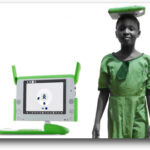The goal is increased engagement in education.
We have focused on two main areas:
- Peer grouping / increased social capital
- Relevancy of content (topic, level of difficulty, timeliness, and share-ability)
Red Rover is focused on helping students “find their people”. First for orientation, and then in classes. There is a consistent “recommendation” theme (people like you . . . ) that we will be pushing forward as more data begins to pile up in the system.
Grouping inevitably leads to communicating and area number 2. When we first started building Red Rover, we assumed we would be building some sort of group leader blogging platform to disseminate information and leave a learning record.
With a little research, it quickly became clear that focusing on RSS feeds would give us, and the groups, a flatter information structure and greater flexibility. By setting the Red Rover goal as organizing, recommending, and filtering feeds, we can deliver on relevancy without building the content publishing or aggregating systems ourselves.
This keeps Red Rover simple, ready for whatever comes next, and saves us time and money (allowing us to continue to offer it for free.) It’s a win/win.
Red Rover is working towards becoming a recommendation platform for education. Just like amazon.com recommends books. People who bought x, then bought y.
We will be matching users based on tags and participation so we can eventually say: “Incoming first year students like you joined x group, and a little later, took y class, and took z internship.”
If it sounds complicated to build – that’s because it used to be.
Now, however, 95% of the technical challenges have been figured out and are sitting on the web.
Do you want machine learning and user matching/clustering in Ruby? Here you go.
A blog / RSS / or any site into a matchable tag cloud? Check**.
RSS mashups with quality filters? Yup**.
Group twittering into tags? No problem.
An easy way to move a group of feeds from one node to another? Uh-huh.
Turn tag clouds and feeds into portable attention profiles that can be used for almost anything in education? Easy.
Not to mention the thousands of free flavors of group communication, collaboration, and learning tools, all with a handy RSS feed.
Getting to an engagement increasing social and academic recommendation platform for college is not a technical challenge. That part is mostly sitting in the open. It’s an education challenge.
Do we start top down? Or bottom up?
Top down:
If schools knew about this stuff . . . well they do (sort of). The IT department does and the librarians do. They just have not yet been able to get a comprehensive solution past the administration or the faculty.
If schools just tried using pieces of it . . . well they do. Tons of schools have RSS feeds on their web pages. Then they get frustrated because of the extremely low adoption rates of the students. This damages the credibility of whoever pushed it and that person gets looks when they come up with the next thing.
Bottom up:
Students, for the most part, use the popular tools (meaning pretty much Facebook, Myspace, youtube, and some music stuff) but do not yet have the contextual understanding to put them to use in novel ways to improve their educational experience.
On average, they don’t yet know what to ask their schools for, so instead, they hunker down on Facebook and complain about what doesn’t work with the school’s offerings.
Who should teach them the bigger picture and the bigger possibilities? The faculty that IT departments are having trouble convincing.
There are many fantastic individual examples of faculty members mixing and matching their own amazing 2.0-ish solutions. M Wesch comes to mind. And BJ Fogg is doing great work at Stanford. There are many more, I’m sure, who keep a lower profile.
What’s needed for a good recommendations platform in education, however, is not isolated points of excellence but a unifying framework with mass adoption.
Right now, the various institutional interests (students, administration, IT, faculty) seem jumbled and full of crosscurrents.
Despite the fact that the pieces are dangerously (if you are a company that is currently milking higher ed) FREE, there is not yet significant alignment on any one solution.
(Or even end to end for part of a solution – does anyone know of a college specifically teaching RSS readers as a literacy skill to all students?)
To date, there has not been a unifying curriculum that ties the various constituencies together in a common understanding of the possibilities. So Blackboard continues to dominate.
We need a new story.
If you had a choice as an entrepreneur, would you prefer a technical challenge or an education/marketing challenge?




